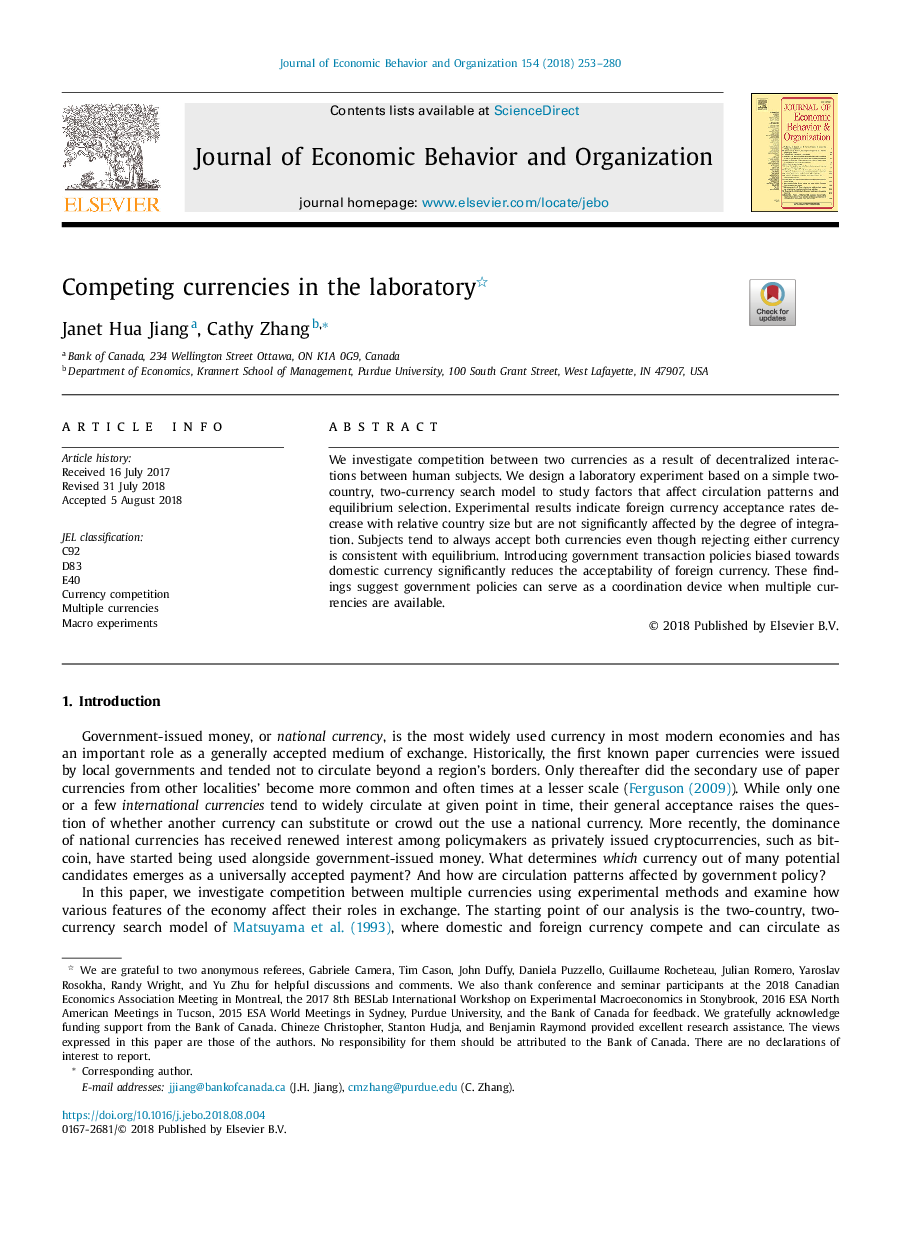| Article ID | Journal | Published Year | Pages | File Type |
|---|---|---|---|---|
| 10127604 | Journal of Economic Behavior & Organization | 2018 | 28 Pages |
Abstract
We investigate competition between two currencies as a result of decentralized interactions between human subjects. We design a laboratory experiment based on a simple two-country, two-currency search model to study factors that affect circulation patterns and equilibrium selection. Experimental results indicate foreign currency acceptance rates decrease with relative country size but are not significantly affected by the degree of integration. Subjects tend to always accept both currencies even though rejecting either currency is consistent with equilibrium. Introducing government transaction policies biased towards domestic currency significantly reduces the acceptability of foreign currency. These findings suggest government policies can serve as a coordination device when multiple currencies are available.
Keywords
Related Topics
Social Sciences and Humanities
Economics, Econometrics and Finance
Economics and Econometrics
Authors
Janet Hua Jiang, Cathy Zhang,
